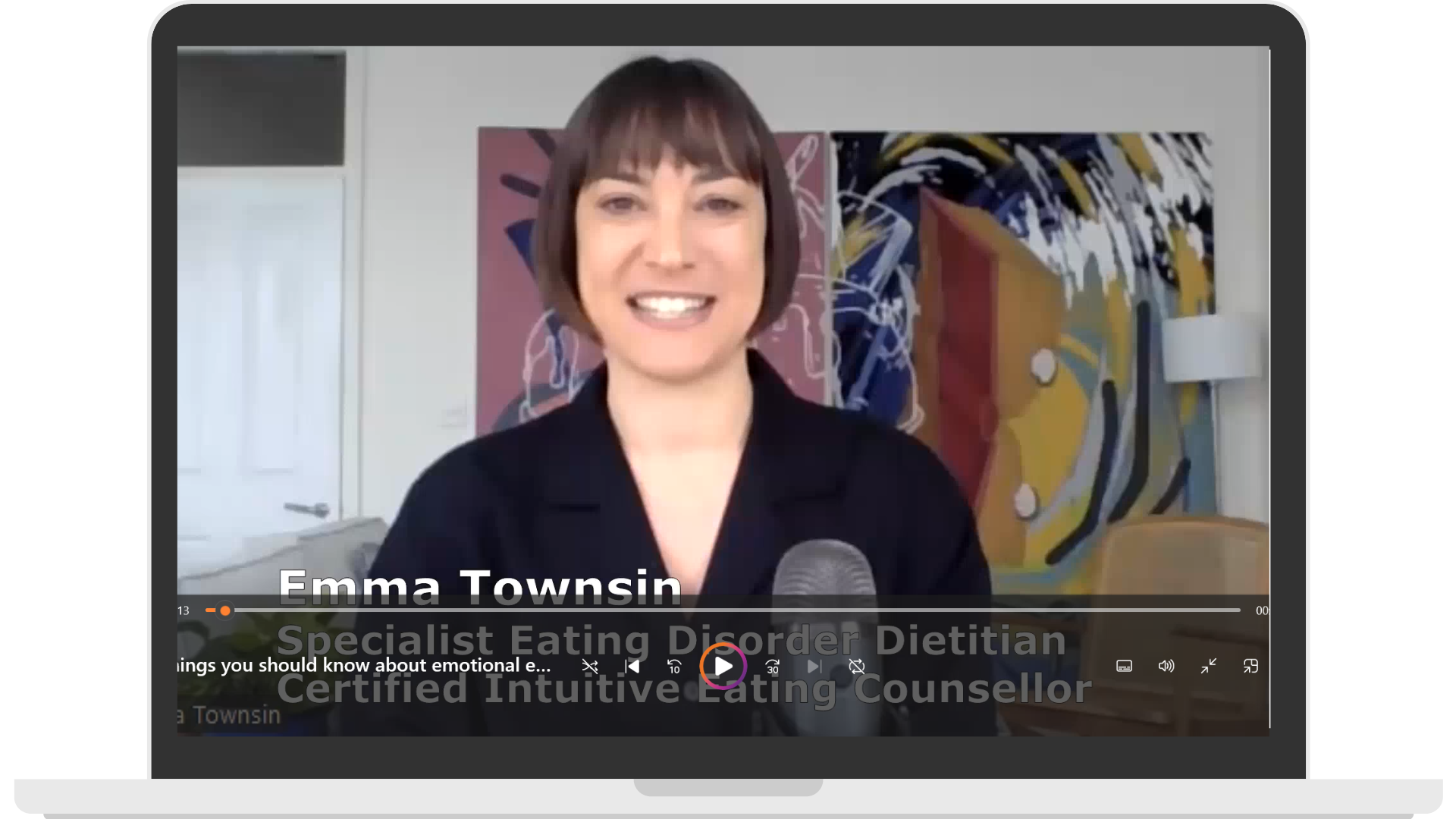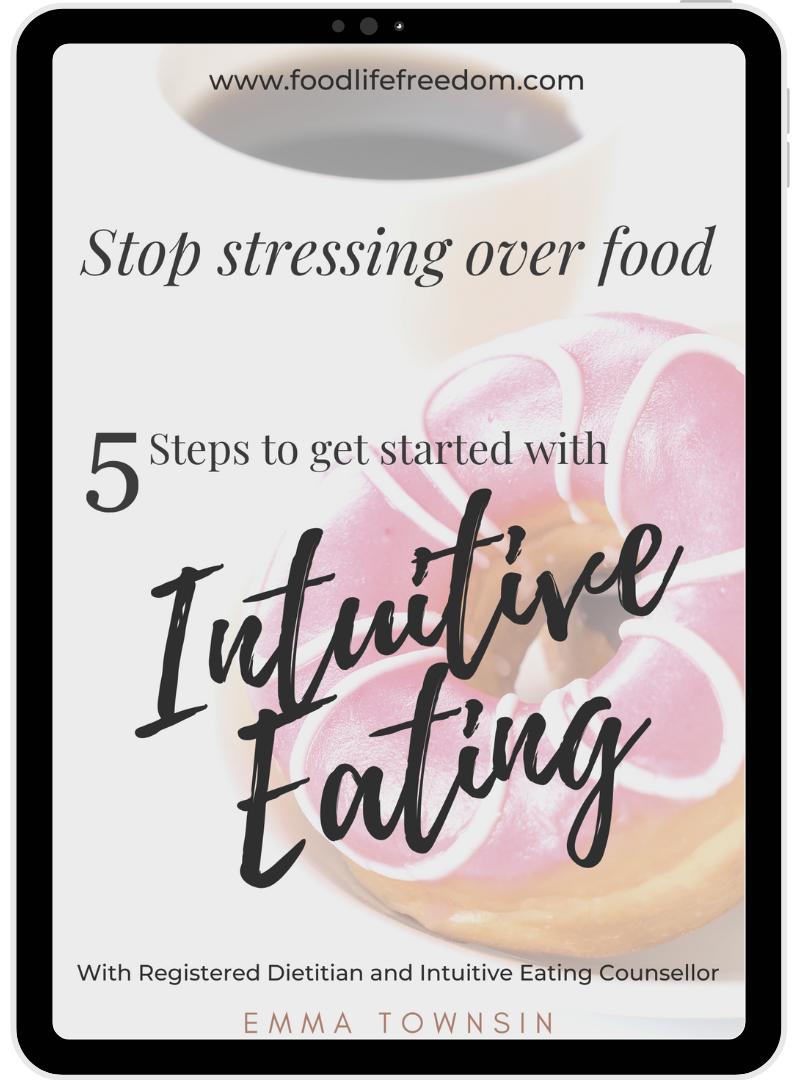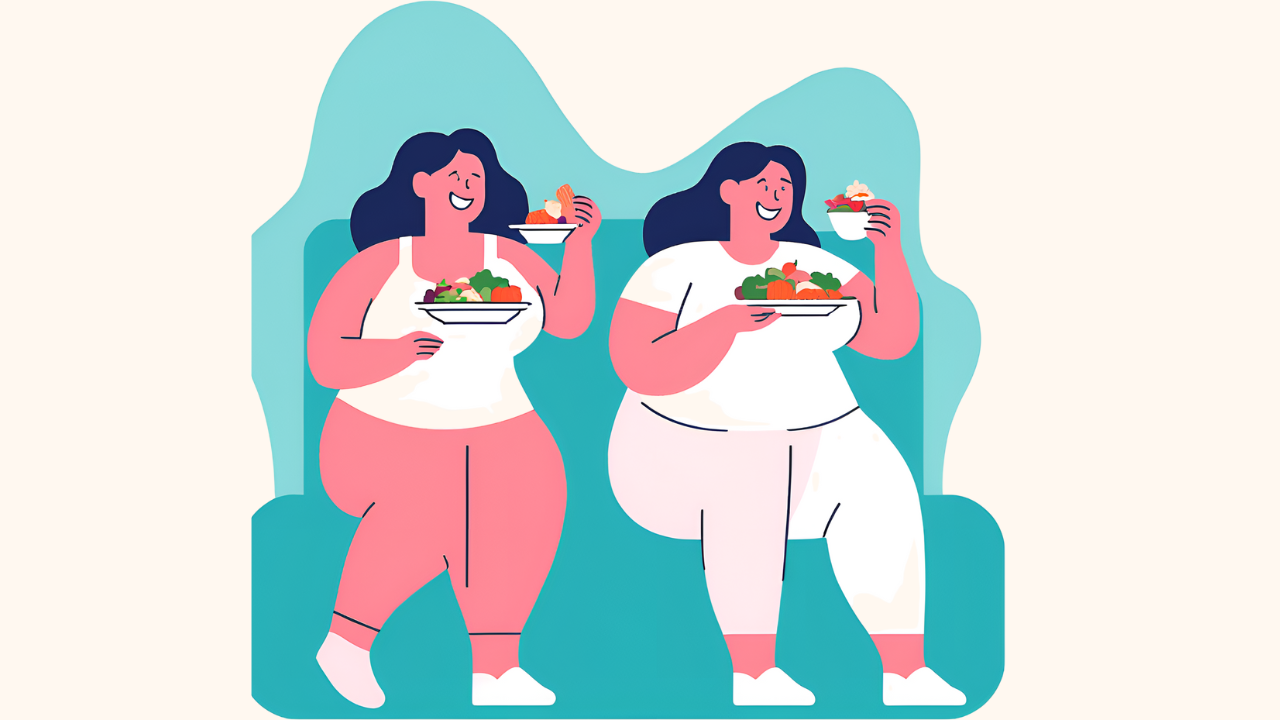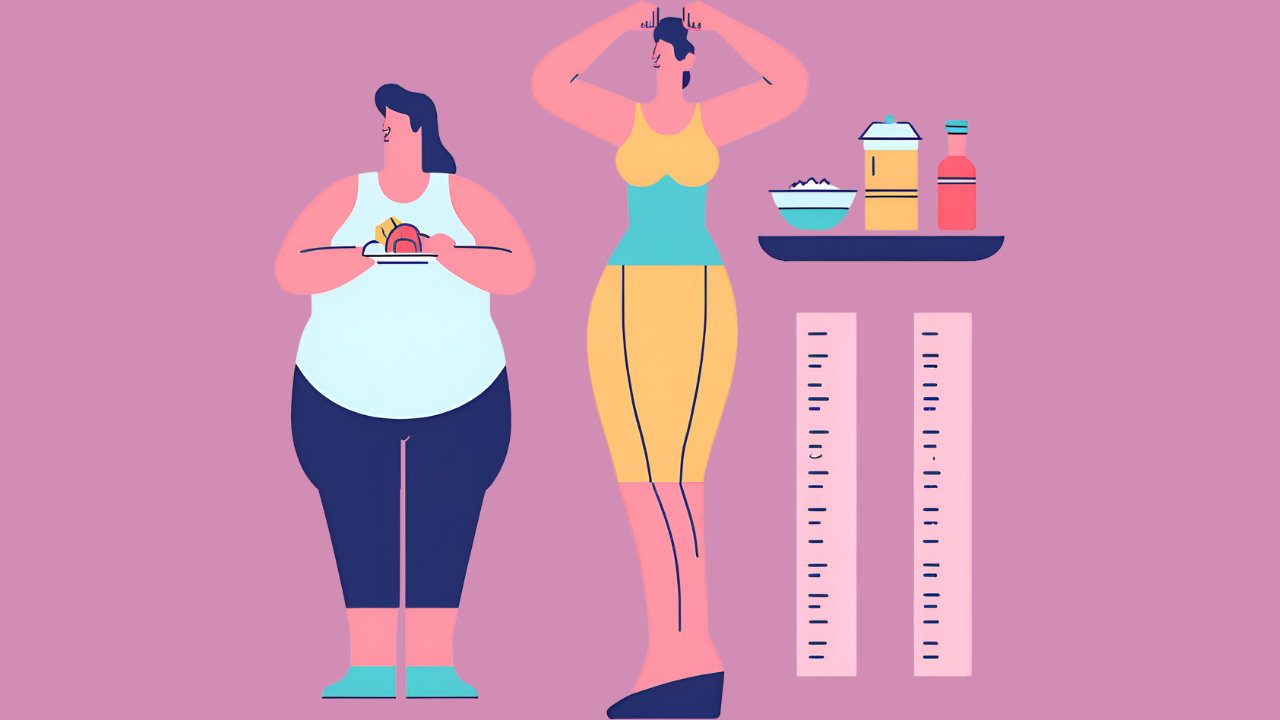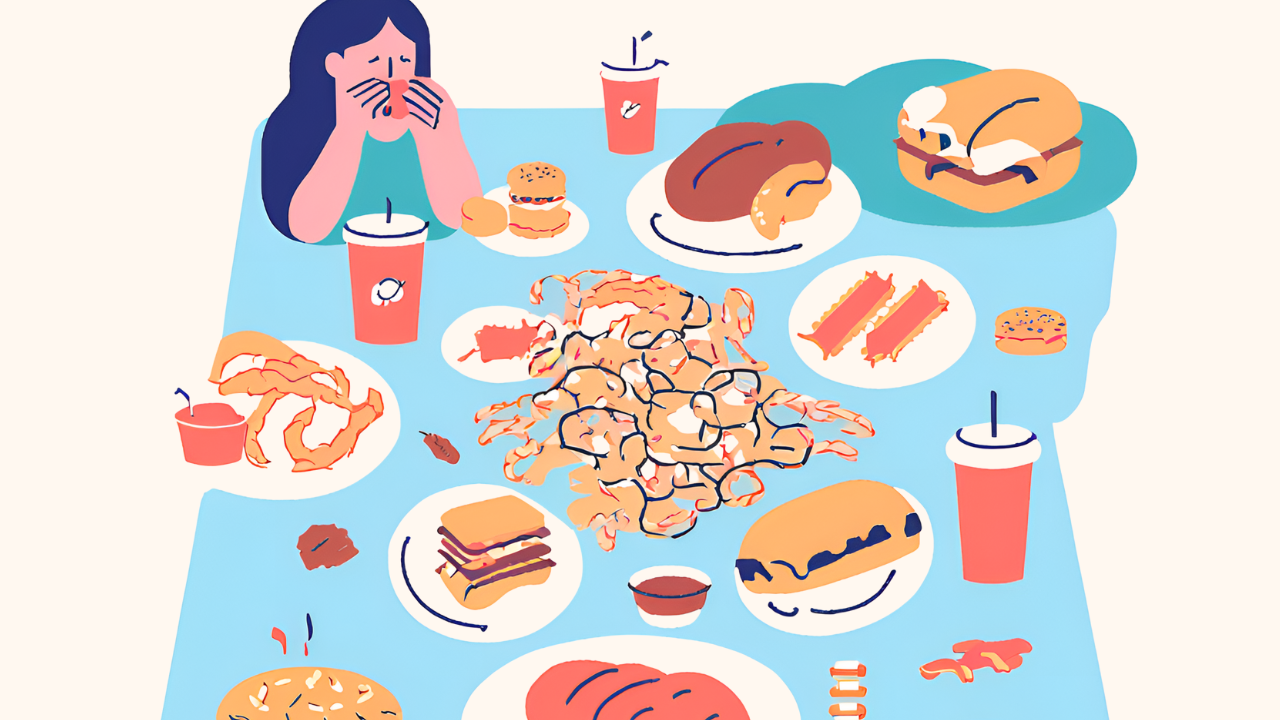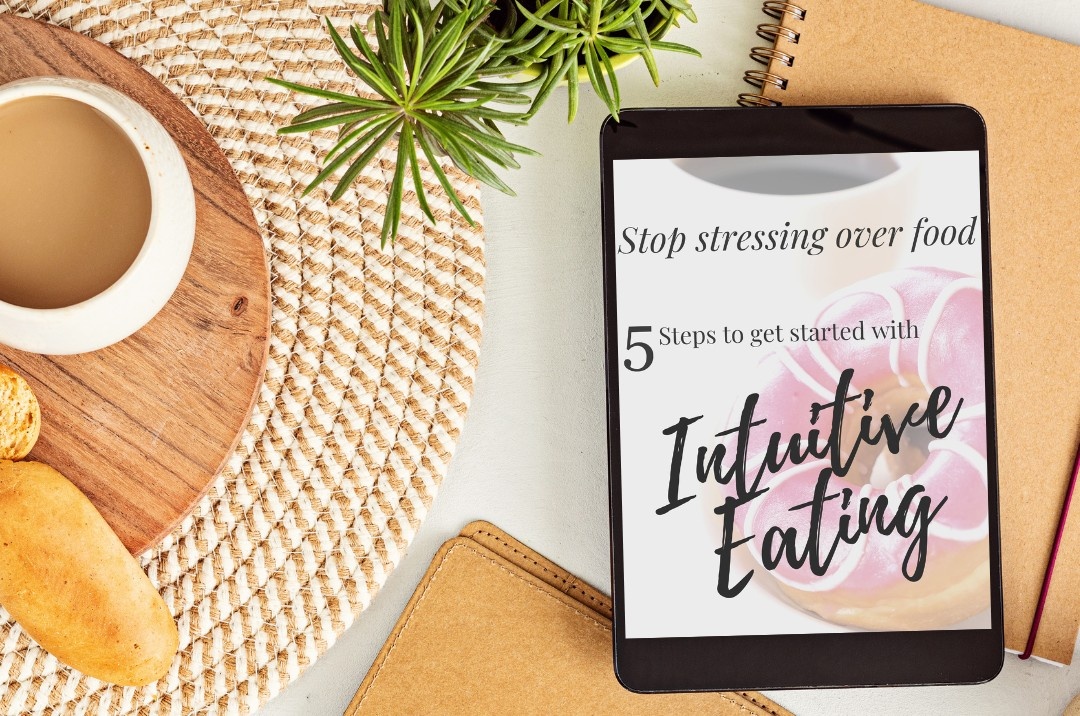How to cope when weight loss health campaigns make you feel worse
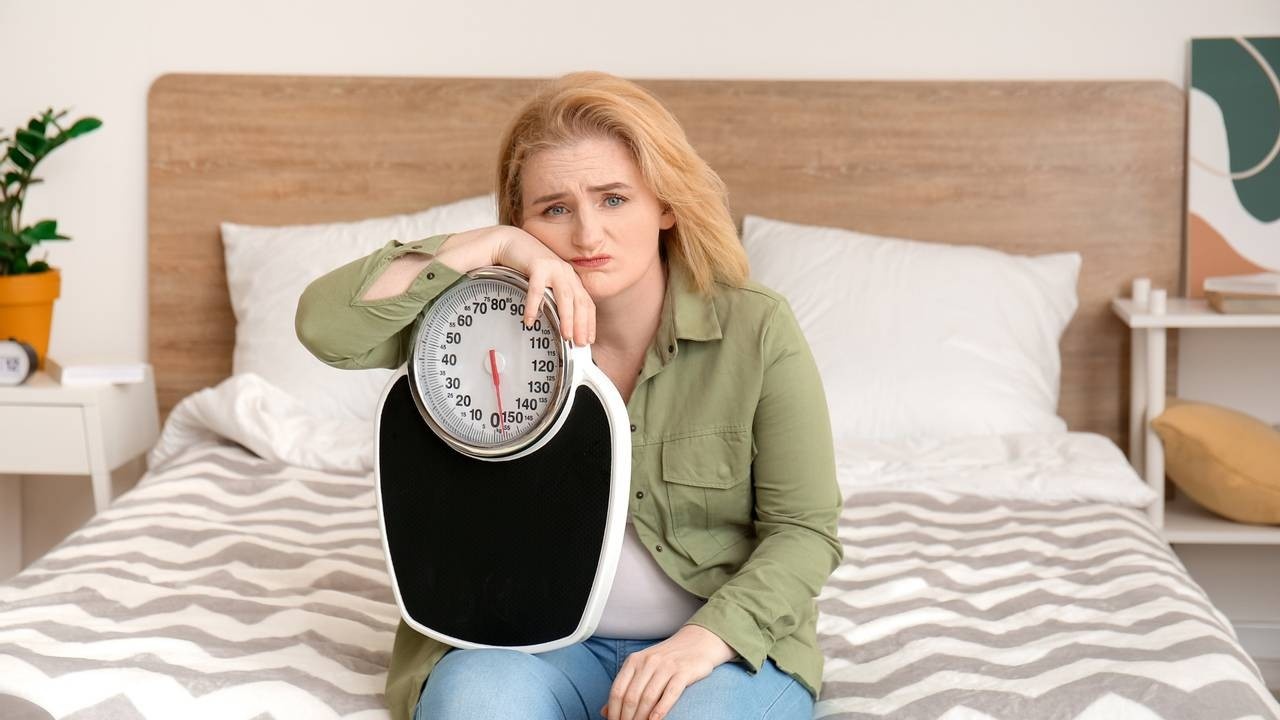
Yet another weight loss campaign has been announced in the UK, targeting diet and exercise to lose the pounds. Although, telling us to lose weight is not new. These campaigns have been tried over and over again for decades, and failed.
We are surrounded by messages, both subtle and blatantly obvious every single day telling us our body is not good enough, that we need to lose weight. For most of us, we have tried cutting out foods and increasing exercise and we already know it has not worked.
When faced with weight loss campaigns, how do they actually make you feel? Are they helpful? Do they motivate you to live a healthier and happier life? Or do they perhaps make you feel you have failed, that your body is the problem.
Your body is not the problem.
We have a strong body of research showing that weight loss campaigns do not work. If they did, why do we have the same campaign (with a new name) every single year? Let’s take a look at why weight loss campaigns don’t work.
Why weight loss campaigns don’t work
1. They focus on weight loss, which is not the same as health
A focus on weight loss has been shown time and time again to not work.
When we spread messages that a certain body type is more desirable than another, we create morality and a sense of value over body size. Targeting weight is shown to worsen societal weight stigma - discrimination based on body size. Weight stigma in itself is shown to worsen health outcomes regardless of actual weight.
The truth is, we do not have an evidence-based way to lose weight long term. The vast majority of people will regain the weight after a diet. It has nothing to do with willpower and everything to do with your body’s natural reaction to the famine it has just experienced.
Research shows health improvements occur when making healthy lifestyle changes even without any weight loss. There is no research to show weight loss on it’s own improves health. In fact, when we use weight loss to measure our progress, we are less likely to continue healthy behaviours.
A focus on weight loss actually reduces the healthy behaviours we engage in and over time has negative health impacts.
2. They put the blame on us
Weight loss based health campaigns tell us we are in absolute control of our weight. They shame us for our body and directly relate this to health. However, 64% of our health determinants come from environmental, genetic and social factors that are completely out of our control. Improving social services and access to safe spaces will have a bigger impact on population health.
The remaining 36% of our health impact comes from psychological aspects such as life satisfaction and optimism, mood and mental health, sleep patterns as well as diet and exercise. Although we are told to focus on diet and exercise, this contributes only a small amount to our health. Mental health and life satisfaction are just as important for our physical health.
Stressing over diet and exercise can negatively impact on other important health promoting behaviours.
3. They don’t open up conversation about the deeper issues
We’ve all heard it many times before “eat more vegetables” and “exercise more”. They target the same messages as if our motivation is the problem. But actually those of us trying to lose weight are often more motivated and have more willpower than anyone. The issue is our cultural obsession with body size.
Dieting, defined as eating to rigid external rules rather than trusting our body, is the most common predictor of developing an eating disorder, associated with a 12x greater incidence of binge eating and is statistically much more likely to lead to weight gain. The issue is not our motivation, it’s the shaming messages surrounding food and body leading us down this dieting path.
We know what to do, we are motivated but our diet culture is creating harm. This is where the conversation needs to be.
4. They provide advice that is dangerous for many of us
Disordered eating is very common in our society, even normalised. Many of us silently feel stress over food choices, deny our hunger, fear fullness, experience emotional eating and binge-restrict cycles. Weight loss campaigns focus on policing and tracking food and movement. For those with a difficult relationship with food and body, this encourages and normalises harmful behaviours.
It makes the side-effects feel shameful, keeps us quiet and feeling alone in our experience. Normalising these harmful behaviours reduces access to support services for those who need it.
Food policing and perfection around food and body further harms those with a difficult relationship with food and reduces access to support services.
How to protect yourself when weight loss campaigns are unhelpful
Here's some steps you can take to protect yourself from harm from weight loss messaging.
1. A public health campaign is not personalised information
We are all unique so a public health campaign is not individualised advice. Our relationship with food and body is just as important as what we eat. If the messages do not support a positive relationship, then they are not helpful for you. You are the only expert on what is right for your body.
Give yourself permission to let go of unhelpful messages and focus on what makes your body feel good.
2. Unfollow and diversify
When we are surrounded by weight loss and body shaming messages, it reinforces unhelpful thoughts and behaviours. You are allowed to unfollow social media accounts that bring you down and turn off the news if it is causing stress. There are evidence-based health approaches such as intuitive eating which focus on kindness, compassion, acceptance and a positive relationship with food as a priority.
Diversify your social media with accounts that lift you up and read articles from diverse backgrounds.
3. Develop self awareness and inner confidence
We are all different so one-size-does-not-fit-all. Developing an understanding and trust in your own body is powerful to achieving the confidence to let go of advice that is not a good fit. You are the only one who knows what your body needs, finding this self-awareness and inner confidence is powerful to achieving true happiness and wellbeing.
Trust yourself to know what is best for your body and allow yourself to let go of unhelpful advice.
It can be challenging to stand up against health advice even when we know it is not helpful. Book a FREE discovery call to learn how you can support your health without a focus on weight loss.
Author Bio:
Written by Emma Townsin, Registered Dietitian and Certified Intuitive Eating Counsellor
Emma is the founder of Food Life Freedom and the host of the Food & Life Freedom Podcast. For personalised support to stop stressing over health and heal your relationship with food and your body, learn how you can fast track your way food and life freedom.
References:
- Hunger et. (2020). An evidence based rationale for adopting weight inclusive health policy. Social Issues and Policy Review, Vol. 14, pp. 73--107
- Matheson et al. (2012). Healthy Lifestyle Habits and Mortality in Overweight and Obese Individuals. Journal of the American Board of Family Medicine, Vol. 25, pp. 9-15.
- Golden, N. H., Schneider, M., & Wood, C. (2016). Preventing Obesity and Eating Disorders in Adolescents. Pediatrics, 138(3). doi:10.1542/peds.2016-1649
- Neumark-Sztainer, D. (2005). I’m, Like, SO Fat!. New York: Guilford.
- GoInvo. (2017). Determinants of Health Visualised. Accessed via www.goinvo.com
Want 1-to 1 support?
Learn how you are supported to feel good around food.


